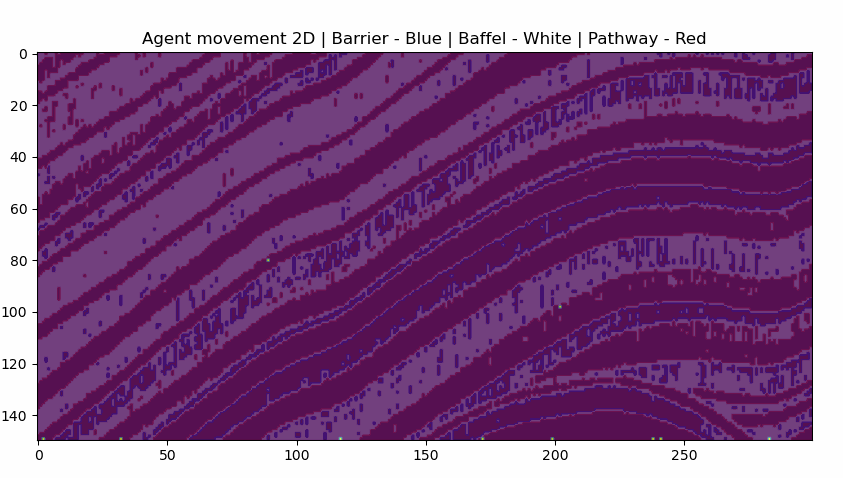This PhD project addresses that gap by creating novel simulation tools to explore and evaluate natural hydrogen systems using agent-based modelling (ABM), a form of AI based that models complex interactions in systems with simplified rules/behaviours. This makes them powerful and interpretable. This PhD, part-funded by a Hydrogen exploration company, H2AU, will develop ABM models on real data to guide real-world exploration and reduce risks, ultimately advancing natural hydrogen toward commercial viability.

The Project
At the heart of this project is the development of an ABM framework that treats rocks, fluids, and microbes as individual agents interacting within a dynamic subsurface system. This approach captures complex geological and microbial processes while remaining computationally efficient, an essential advantage over complex basin migration models.
A critical aspect of the model is how we will integrate the effects of microbial hydrogen consumption using agents. Microbial life, including sulfate-reducing bacteria, methanogens, and acetogens, can significantly impact hydrogen availability, but current migration/exploration models do not account for their effects. Building on established microbiological data, we will incorporate the effect of microbiome rule-based logic or reinforcement learning.
To ensure geological realism, the model will be built directly from seismic interpretations and other geological data, using the open-source GEMpy Python library. We will enhance this open source model using our own ABM models, which will be adapted to hydrogen in this PhD. The result will be a novel tool capable of simulating hydrogen migration and retention across a range of geological settings.
The final phase of the project will involve applying the model to an active hydrogen exploration area, in partnership with H2Au. This real-world case study will allow you to test, validate, and refine your modelling framework, demonstrating its potential to inform future hydrogen exploration efforts.
What Makes This Project Unique?
This is a rare opportunity to work across disciplines at the cutting edge of energy and Earth sciences. The supervisory team combines expertise in machine learning, uncertainty quantification, subsurface modelling and simulation, microbiology, and hydrogen exploration from Heriot-Watt University (Dr. D. Arnold, Dr U. Nicolson, Prof V. Demyanov) and the British Geological Survey (Dr S. Gregory). The PhD student will be supported by a team with deep expertise in data-driven modelling, geological exploration, microbiology and subsurface modelling, with access to computing resources and data through our industry collaboration.
PhD is based at Heriot-Watt University in Edinburgh, working closely with collaborators at the British Geological Survey, and the industrial partner at H2AU.
Contact Dr Dan Arnold (d.p.arnold@hw.ac.uk) for further information or an informal discussion.
Seem more details and apply:
References:
https://www.mdpi.com/1996-1073/15/3/902
